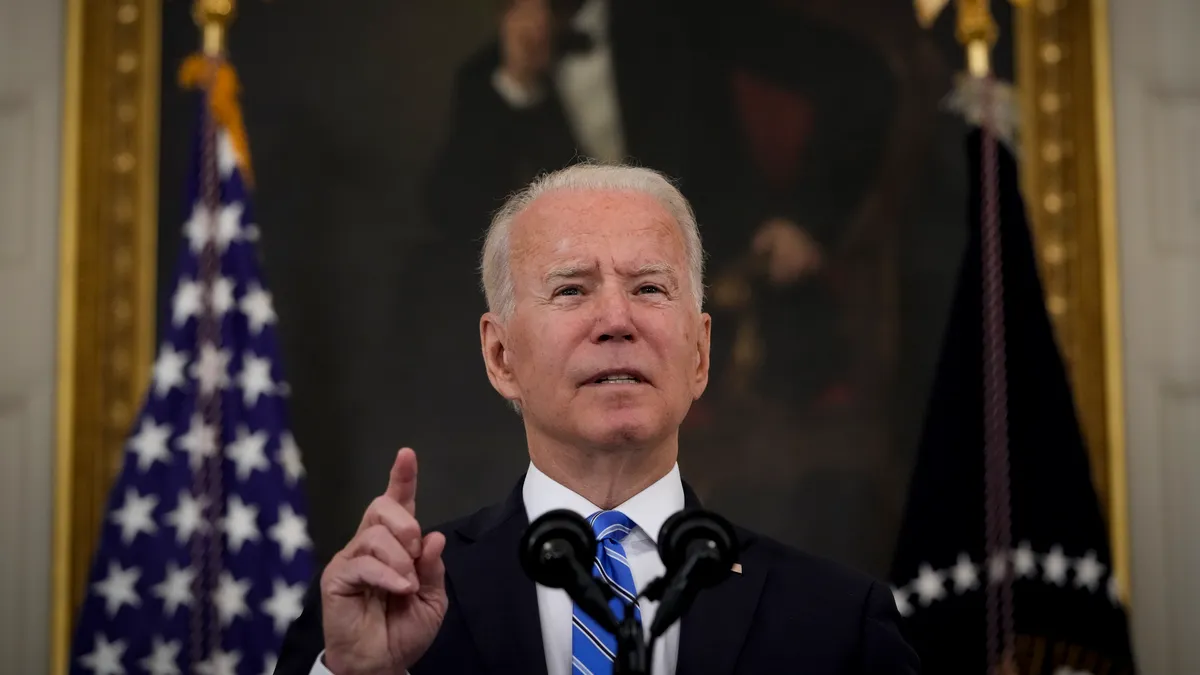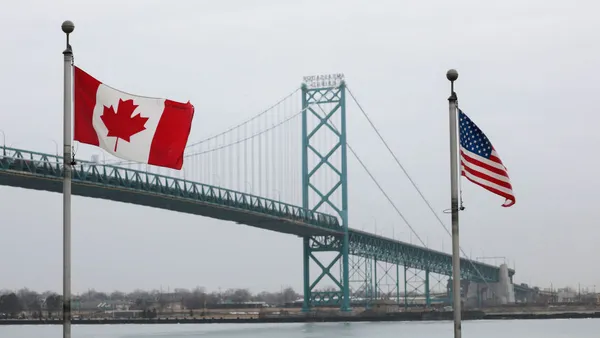UPDATE: Nov. 15, 2021: President Joe Biden signed the infrastructure bill into law Monday. Infrastructure spending related to the $1.2 trillion Infrastructure Investment and Jobs Act will be coordinated by Mitch Landrieu, former mayor of New Orleans.
"This law makes the most significant investment in roads and bridges in the past 70 years," Biden said during the bill signing at the White House. "What that means is you're going to be safer, and you're going to get there faster and we're going to have a whole hell of a lot ... less pollution in the air."
Dive Brief:
- The House passed the infrastructure bill late Friday with a vote of 228 to 206, advancing a $1.2 trillion spending package that would fund a range of infrastructure projects. President Joe Biden is expected to sign the bill in short order.
- The bill, the Infrastructure Investment and Jobs Act, passed the Senate in August. It includes $550 billion in new infrastructure spending and comprises $110 billion for improvements to roads and bridges.
- Along with repairing roads and bridges trucks traverse, the infrastructure bill is likely to increase demand for flatbed services, while possibly increasing competition with the construction industry over the labor pool.
Dive Insight:
Once signed, the $550 billion in new spending will be the largest new investment the federal government has made on infrastructure in decades.
The infrastructure package includes "a 38% increase in road and bridge funding, and an infusion of highly-trained, younger talent into our workforce," American Trucking Associations President and CEO Chris Spear said in a statement after the House passed the bill.
Still, the legislation represents a compromise. As the ATA put it on Sept. 12: "It is not a perfect piece of legislation — no bill is."
For the Owner-Operator Independent Drivers Association, the lack of funding for truck parking is troubling. But the group did voice relief that the text does not include a measure to increase the minimum insurance requirement to $2 million.
The final text, however, does include language for states to assess parking facilities as part of a broader call to improve state freight plans. It also contains provisions to:
- Support women in the trucking workforce.
- Address automatic emergency braking.
- Establish a task force on truck leasing.
- Start a pilot program to let some drivers under age 21 haul interstate loads.
- Provide Congress with a report on human-trafficking violations involving commercial motor vehicles.
- Pilot a vehicle-miles traveled fee program.
Passage of the infrastructure bill comes at a time of congested supply chains, as retail demand keeps trucking capacity tight.
"The prioritization of our nation's fundamental transportation network will mitigate many of the supply chain challenges businesses are experiencing today," National Retail Federation President and CEO Matthew Shay said in a statement following House passage.
Once signed, the legislation will also boost construction markets and in turn create demand for dry van and flatbed carriers.
"The $1 trillion infrastructure spending bill ... has the potential to continue to serve not only as a backup to raise, but also extend the runway of this healthy rate environment for those [carriers] such as Daseke," CEO Jonathan Shepko said during the company's latest earnings call.














